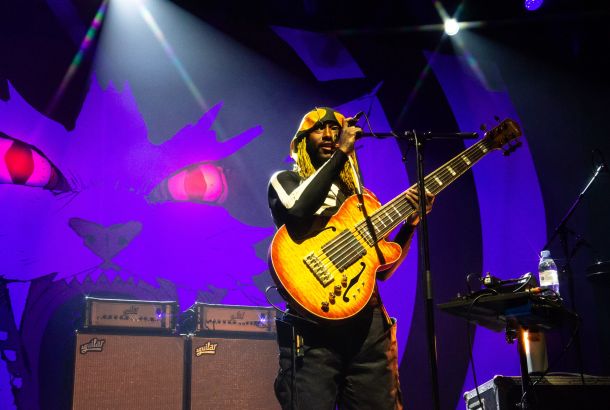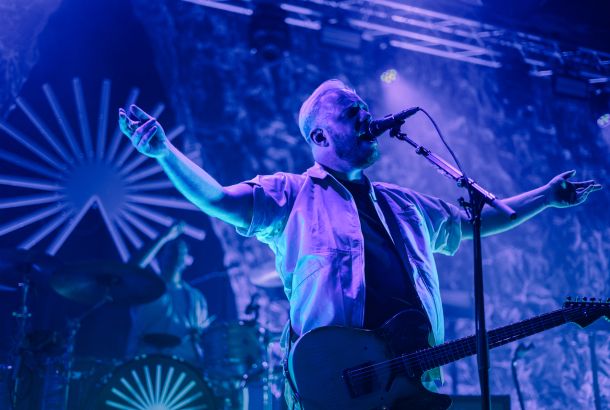Interview: Paul van Dyk
By music
Having been twice voted No. 1 DJ in the world, and with a Grammy Award and over five million album sales under his belt, Paul van Dyk is something of a legend in the electronic music world. Music Editor Eoghan Bennett sits down with the trance DJ to discuss playing at The Warehouse Project, his new album and growing up in East Berlin.
The Mancunion: Are you excited to be playing in Manchester again?
Paul van Dyk: Absolutely. It’s been two years since I was last here, but it’s always nice to come back. And playing an event as huge as The Warehouse Project is a massive honour. I played with a couple of the other headliners in Ibiza this year so I’m looking forward to playing in a completely different environment.
M: The night is to celebrate ten years of your record label Vandit Records. How do you see the label progressing from here?
PvD: One of the unique things about Vandit Records is that we don’t really have any deals or contracts with our artists. Everybody who is on the label works with us because they want to. Our job is to give the artists advice, and some of our artists will keep giving us new music until we say, “Now you’ve nailed it”. New for this year we’ve joined forces with the Armada label to pool our resources and increase our respective audiences.
Anybody who has been privileged enough to witness the audio-visual feast that is his live shows will know that his techniques are far from orthodox. “I don’t use turntables or CD players. Instead I DJ with two laptops, MIDI keyboard controllers and a custom-made mixer, and that’s what enables me to play completely freely. For example, I could take a sample from a popular track but mix it with a different bassline or different drums, and it will feel so much more intense at the exact point of the set that I play it. I’m able to completely remix things, or even compose something new, on the fly. This creates a rather intense energy and power to the set”.
M: So is there a lot of planning that goes into your set, or are of a lot of decisions spur of the moment on the night?
PvD: It’s not so much planning as preparation. I need to know my music inside out in order to be able to play freely. I always try to have a really clear idea of what sound I’m trying to achieve, but everything else is always down to interaction with the crowd. So there’s some things I just can’t prepare for. It’s very much a learning process. I try to take something from every set that will help me improve.
Given the longevity of his career (he has maintained his place in the top 10 DJs in the world since 1998) you’d be forgiven for thinking that commercial success is the driving force behind one of the world’s biggest trance DJs. But Paul van Dyk puts it differently, “I think the reason for me appearing in these polls and lists so often is that I actually don’t care about them. For me it’s always about the music and the interaction with the audience. I really love what I do and that’s why musically my shows have been so popular. It’s nice to be voted one of the best DJs in the world, but that’s not what’s driving me.”
M: So if that’s not, what is?
PvD: “I know it sounds cliché but I just really love what I do. Electronic music is what gets me out of bed in the morning. I’m a freak. I’m in a very lucky position to always have a crowd in front of me that gives me so much back, and that’s what gives me the energy inspiration to continue.”
Paul van Dyk was born in a small town in Germany in 1971, and grew up in East Berlin at the peak of the cold war.
PvD: “My upbringing certainly means my approach to music is somewhat different. I was able to listen to West Berlin radio stations in the East, it was illegal but everybody did it, so we were completely aware of what was going on in the world of music. The difference was there were no record stores where we could buy music, and there were no magazines in which we could read about our favourite artists. So the idea of a pop star completely passed me by. For me it was all about the music because I didn’t know what my favourite artists looked like, or what they had to say.
Between dates on a hectic touring schedule, Paul is currently working on his sixth studio album, due for release in 2011. What can listeners expect?
PvD: “For this album I’m working completely on my own, without a production team. I’m writing it, programming it and playing all the instruments myself. It makes the whole process a little longer, but means the music is a lot more personal and intense. I’ve been playing a few of the new tracks at some of my recent shows and the crowd seems to love them, so I’m really happy so far.”







